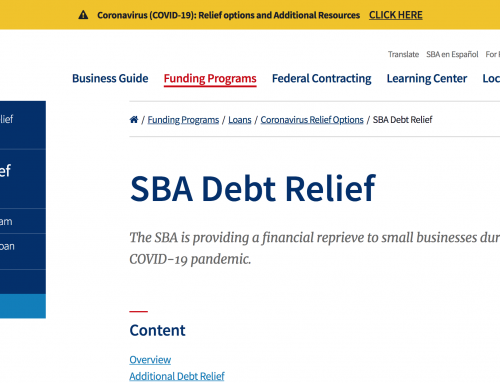Podcast: Play in new window | Download
Subscribe: Apple Podcasts | RSS
In this particular episode, you will learn
- About Small Business Tax and Practical Tips
Podcast transcript:
Disclaimer: This information is for educational purposes only and not to be used as tax or legal advice. Tax law and accounting protocol are constantly changing. Seek an attorney and qualified accountant.
Topics
Tax
Accounting for a Small Business
Tax Implications
Employees and Independent Contractors
Summary
Tax
The tax rules surrounding business structure may impact the owners and the ability to attract investors and raise capital. Generally structures are either taxed at the corporate level such as a C-corporation or at the owner level, such as a limited liability company. Each structure has very specific tax rules, costs, and benefits for the investors and owners. Seek professional guidance to determine the structure best suited for the needs of the business.
Accounting for a Small Business
Accounting for small businesses is necessary for tax compliance and to monitor results. Keeping current records allows for better planning and less reactionary measures. Good records also allow for year- end tax planning. Often, businesses will use software to bill customers and pay vendors. Accounting software is a great recordkeeping tool, but still requires accounting knowledge if it is expected to generate reasonably accurate records. Accounting must always be viewed in the context of the costs and benefits of the system. In other words, while perfect records and software are ideal, they are not always time or cost effective.
Maintaining the proper sources for transactions is the first step in building financial records. When cash moves, keep a record with a receipt and explanation of the transaction. Keep receipts in a simple, chronological order in a box or whatever is convenient. It will be fine to use bank records later, but in the case of an audit, the original records are very important. Taking notes on receipts as to the business purpose will help the accountant classify the transaction. When cash is received, make notes as to why and whom it is received from.
Use a separate bank account and limit personal transactions. Comingling (combining) of business funds creates unnecessary accounting work. Having a separate business bank account provides legitimacy in audits and keeps transaction volume down. Save time by limiting bank accounts and transfers. Withdraw funds infrequently using relatively large and even amounts. This will make the transactions obvious for future categorization. If possible, avoid tiny purchases to reduce transactions. When paying for items, use credit and debit cards to make accounting faster and improve record keeping. Use checks only when necessary and avoid using cash. Though small business accounting can be done after the fact, current recordkeeping makes tax planning and decision making possible.
- Keep all receipts and document the sources of cash
- Do not use business accounts for personal expenditures
- Limit bank accounts and keep transaction volume low: withdraw infrequent and even amounts, limit bank transfers, and limit small purchases
- Use debit and credit cards whenever possible
Tax Implications
Small business owners are taxed differently than employees. More taxes are shifted to the owner of a business and are not automatically withheld. Current record keeping is a necessity to effectively make proper tax payments and take advantage of potential tax benefits. Business ownership requires significant discipline to save for quarterly tax payments. There are also additional time and monetary costs to hire qualified professionals to help with the process.
Be aware of all state and local business taxes. Even sole proprietors and flow-through entities may be subject to local registration and property taxes. If operating as a corporate or limited liability structure, there are likely state fees. Having employees creates several different taxes and it is best to use a payroll service. Such taxes and fees can be costly and be due surprisingly early in the year. Maintain a tax calendar for all of the different payment due dates, as local and state tax penalties can be severe.
- Business ownership means more tax compliance responsibility
- Understand state and local tax requirements, due dates, and record them on a calendar
- Use professionals
Employees and Independent Contractors
People who work for you may be classified as either employees or independent contractors. Generally, an employee is someone who works for you under your direct guidance and supervision. Contractors are treated as independent of the business, control the manner in which work is completed, and typically work on a project basis. Business owners must pay state and federal taxes on behalf of all employees. There are also requirements to pay for various forms of insurance, such as unemployment insurance. Therefore, small businesses have a tendency to classify anyone who works for them as an independent contractor. It’s imperative to use extreme caution when deciding between employees and independent contractors and utilize a labor attorney to help with the distinction. This is because there are strict laws around the classification and a contractor could be reclassified as an employee, incurring significant fines and back taxes to the business owner.
Summary
Business owners should be free to focus on growing a business in terms of value and profitability. They also have significantly more tax reporting responsibility and must be diligent to stay current. Thus, utilizing advisors to get the best legal and accounting assistance will certainly contribute to its success, while also weighing all of the costs and benefits. Consult with professional advisors before the year-end and maintain current records.





Leave A Comment